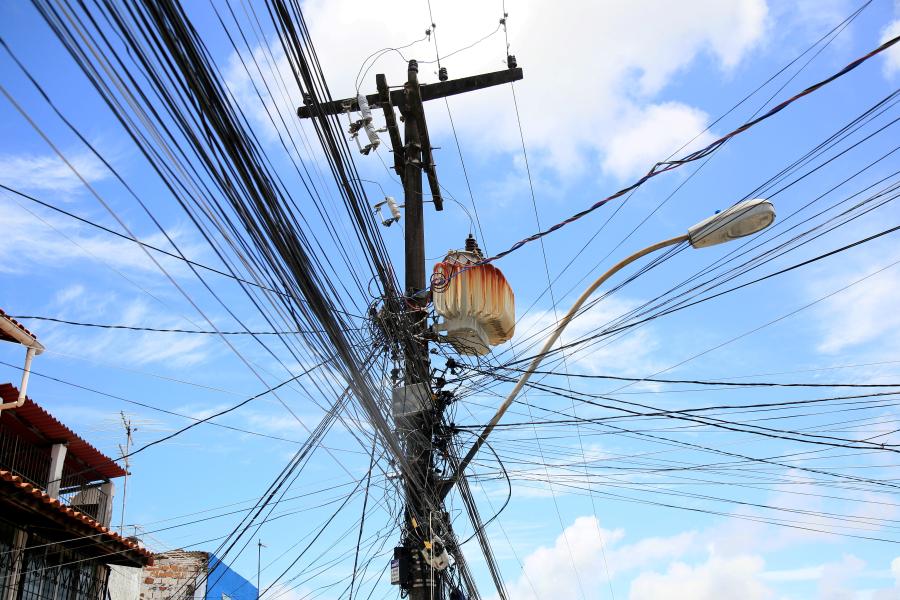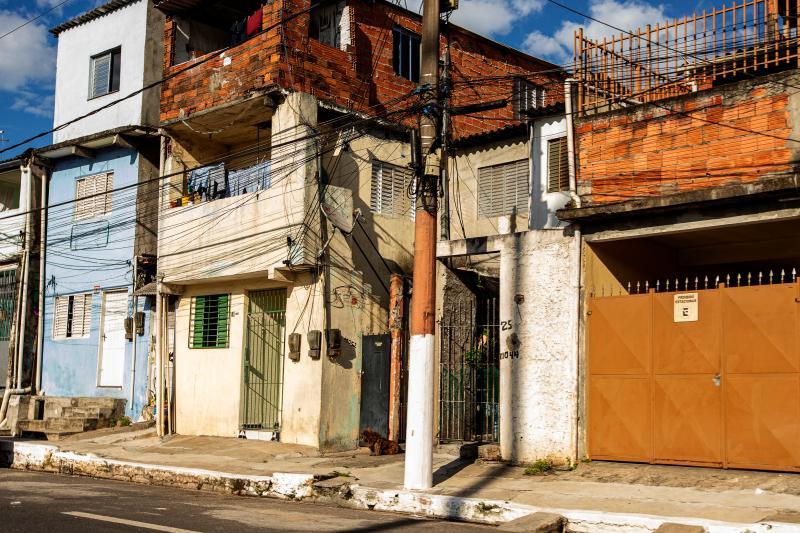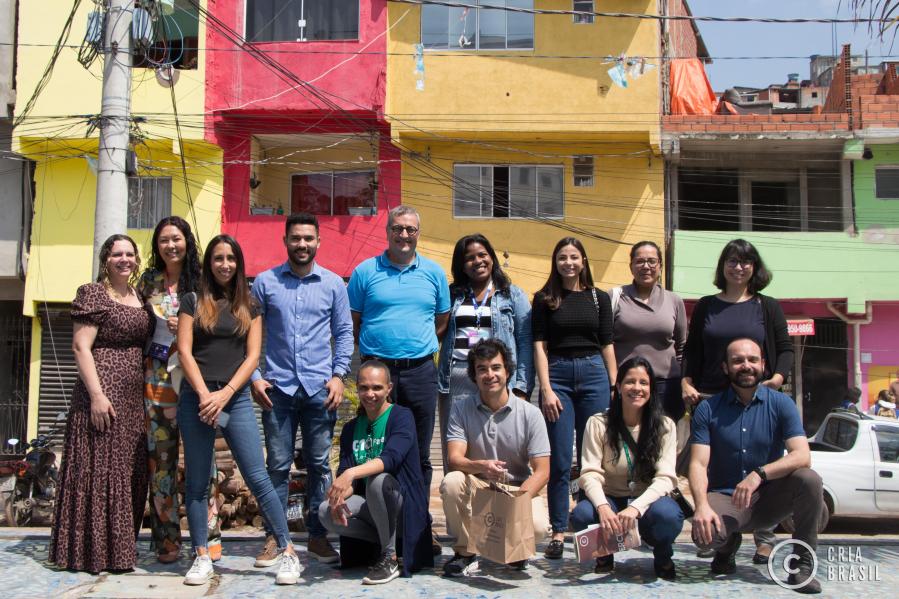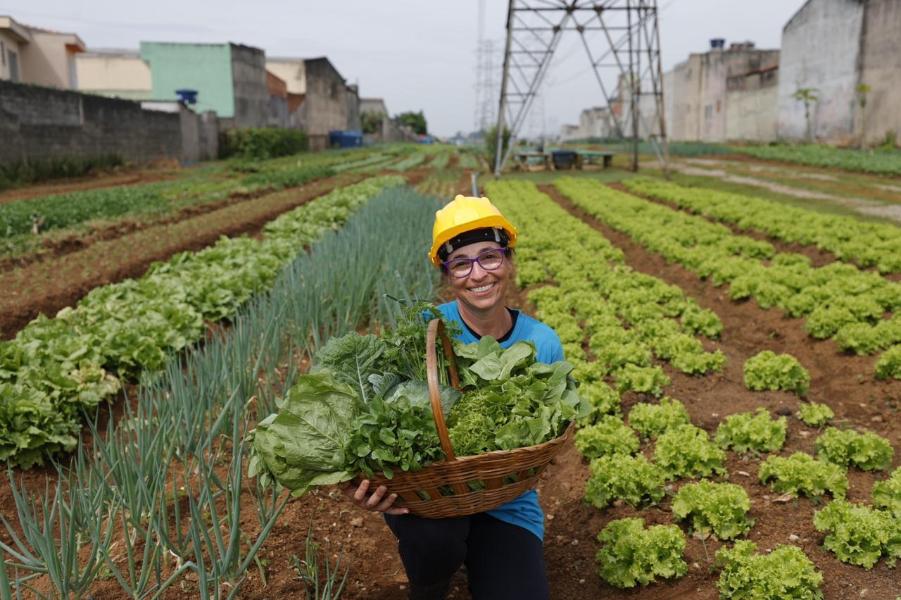To halt illegal connections, Eletropaulo puts people in São Paulo’s favelas on its regular grid, promoting social inclusion, gender equality and social energy tariff
It’s a rainy night in São Paulo.
She’s washing the dishes to distract herself from the sound of the storm outside, the sound of the television presenter going on and off each time the electricity briefly shuts off. She needs to remember to disconnect the TV from the plug before going to bed if she wants to keep the fridge powered through the night.
Hopefully, there will be no blackouts. A few days again, the electricity shut down and all their food, spoiled. She couldn’t even call her husband on the landline. But that’s what she has come to expect ever since her husband made the illegal power connection to the power grid in their area.
If she had a job, they could afford a legal connection, but when you’re a woman living in the favelas, Brazil’s slums, opportunities are few.
Enel São Paulo decided to change this narrative by providing reliable and stable electricity distribution and promoting a local subsidized energy tariff for vulnerable customers to the most impoverished areas on the periphery of São Paulo.
The company represents one of the biggest distribution firm of the Enel Group in the Latina American. It’s the largest energy distributor in the country. It provides energy to 7.6 million clients in 24 municipalities in the greater São Paulo metropolitan region alone.

“If you go to the favelas and look up, you see all these cables connected to the power grid,” says Martina Cimarosa, an associate investment officer at the European Investment Bank who worked on a loan to Enel São Paulo to extend and modernise its network. “Most of them are improvable. One of the main objectives of this financing to Enel São Paulo is to improve the quality of service by replacing network cables and adding extra equipment to improve efficiency.”
But no one was expecting the social and gender impact this initiative would have.
“The different scopes of this projects came as a surprise,” says Moa Westman, a gender specialist at the European Investment Bank. “The main objective was to improve stability and reliability energy distribution in the favelas, but we ended up discovering that a majority of the households were led by women, which added a gender and a social integration perspective to the project.”
The European Investment Bank granted $200 million to the Enel São Paulo to reduce energy losses of its network and improve the quality and safety of the energy supply in the São Paulo region.
- Read about the electrician school for women in Brazil
Improving the quality to avoid energy loss and exercise citizenship
Brazil is the largest single energy consumer in South America, accounting for about 36% of total energy consumption in the region. But the rate of energy theft is around 15%, and it rises to over 50% in the north of the country. In 2020 alone, the costs of electricity theft amounted to BRL 6.5 billion (around €1.15 million).
Enel São Paulo begins its work in peripheral areas with a study of the social and economic context. The company identifies community leaders and integrates them into its “Leadership Network” project, in which it reaches out to the communities and identifies local needs and challenges.
It then continues with a social diagnosis by studying the daily habits and energy consumption of residents.
It recruits local leaders to encourage action in the communities, educating residents about the risks of clandestine connections, and building awareness of the safe and conscious use of energy.
Enel São Paulo also introduces energy efficiency measures to the residents of the favelas, such as the renovation of electrical installations, replacement of lamps and refrigerators by more energy efficient models.
“By regularising the connections in the favelas, we cut the energy losses that damage the supply chain and negatively impact paying clients who bear a percentage of this damage in their energy bills,” says Marcia Massotti, the head of sustainability of Enel Brazil. “With regularised supply, we also reduce the number of accidents with the electricity grid, due to the illegal connections, which cause short circuits in the network.”
But why would people accept being regularised when they could just keep getting free energy? If residents use less than a certain threshold of energy, they benefit from the “social tariff for electricity” a kind of social allowance that allows low income customers to have a lower energy tariff.

The regularisation of energy also contributes to the exercising of citizens’ rights, an important aspect especially for women. Because people in these communities are able to have official proof of their address, they can register for a range of services not previously available to them.
“Having a number on their door and an individual post box gives people in the favelas a chance at social inclusion,” says Massimo Merighi, a senior technical adviser at the European Investment Bank. “With proof of residence, they can register their plot, get social security and even open a bank account – things that seem small but make a difference in social integration. It also gives them the opportunity to apply to social schemes.”
Bringing social impact through communities
To act more closely with customers and with communities living in the peripheries, Enel São Paulo has developed the “Enel Shares” programme that promotes the social and economic development of the most vulnerable population through a series of projects.
“Social and environmental projects are carried out primarily with the public living in favelas,” Massotti says. “In the Brazilian peripheries, social initiatives have become the main support base for residents, especially after the pandemic, which aggravated the economic situation of the poorest population.”

In the “Hortas em Rede” project, Enel São Paulo provides an urban garden and agricultural training for residents, especially women and men aged over 50. The project brings social and economic improvements to the area and makes the residents the protagonists of social transformation.
“The residents are seen as activists, so that the community ceases to appear in the news only as a place of violence and poverty, but is also a network of opportunities, through economic development, entrepreneurship, culture and innovation,” Massotti says.

Opening the doors of opportunity to women
While 48% of all Brazilian homes (nearly 34.8 million) were led by women in 2021, only 53% of women are part of the labour force, compared to 73% of men. The female unemployment rate is 14%, while the male unemployment rate stands at 9.2%
Women who receive emergency aid in the state of São Paulo represent 83% of total beneficiaries, according to the National Secretariat of Citizenship Income of the Ministry of Citizenship. This means that eight out of ten families in situations of greater social vulnerability are headed by women – who also pay their energy bills at the social tariff.
The projects developed by Enel São Paulo, especially those focused on social entrepreneurship and professional training, focus on women. These women have fewer opportunities, receive lower wages in the formal labour market, and are often victims of domestic violence.
“By encouraging social entrepreneurship, we give many women a chance to develop,” says Massotti. “They form productive groups and generate income from their entrepreneurial activities, while also building their self-esteem.”
These projects might also be considered as a way to address the global issue of the women’s underrepresentation in the energy sector. Women only account for 16% of the traditional energy sector, which sets a significant barrier to the sector going through a transformation process.
This is also an important goal for the ENEL Group. “Combating energy poverty on all its fronts is ENEL's commitment and responsibility, says Massotti. “Thanks to such projects and support, more people, especially women, will benefit from our services, especially those in a situation of social vulnerability. We’re working towards a more inclusive and gender-balanced energy sector, continuously expanding the positive impacts of our initiatives in the regions where we are present.”
